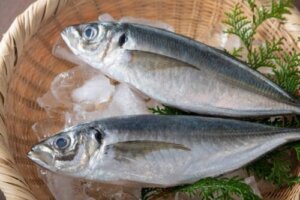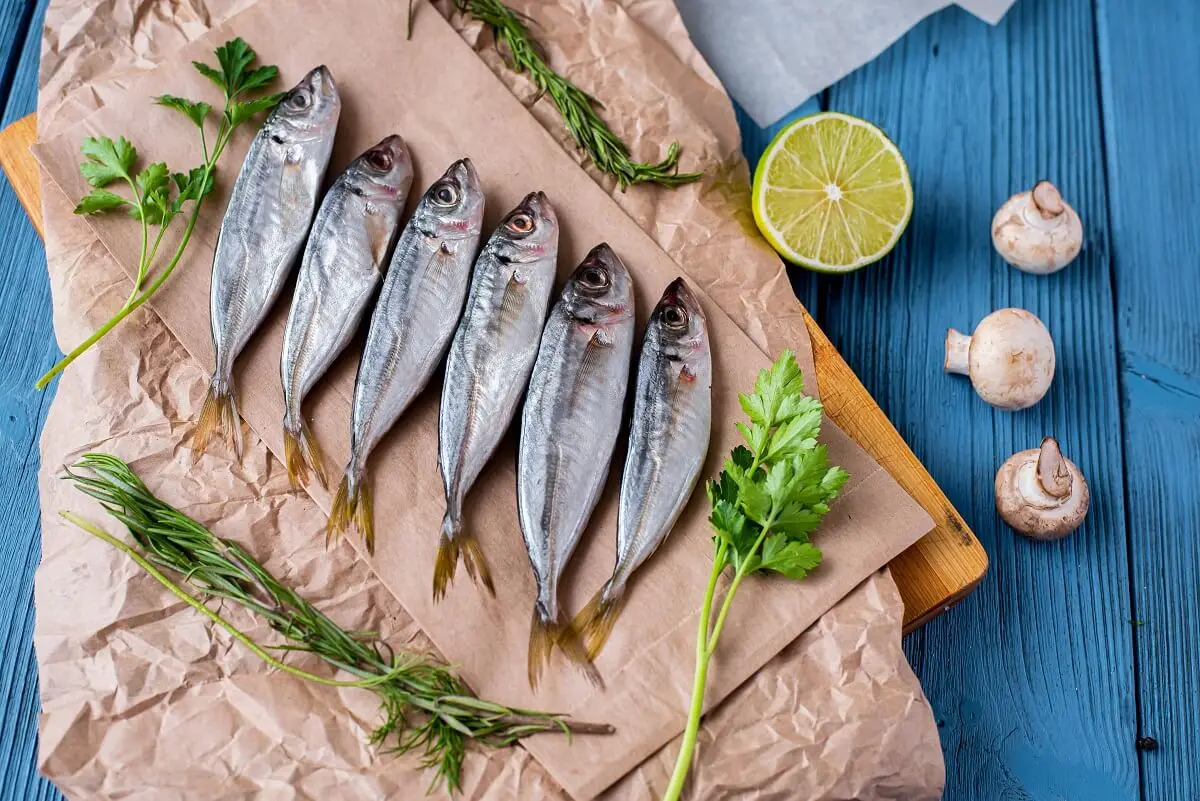Horse Mackerel, a Fish with an Excellent Nutritional Value


Written and verified by the nutritionist Saúl Sánchez Arias
The Horse Mackerel, also known as the Atlantic Horse Mackerel or Scad, is a fish of good nutritional quality that can be included regularly in the diet. Its intake helps to improve health in general. We’re talking about a type of oily fish that’s characterized by concentrating fatty acids of the omega 3 series.
Thus, its intake favors the balance of the body’s lipid profile, which will also help to regulate inflammatory mechanisms. An optimal intake of healthy fats is crucial for a well-functioning physiology. Hence, consuming this type of food is key to well-being.
Nutritional value of horse mackerel
When talking about horse mackerel, the first thing we have to make clear is its nutritional value. It’s a fish that provides about 127 calories per 100 grams (4 oz) of product. Out of these, 7 grams are fat, although mostly unsaturated.
It’s a source of fatty acids of the omega-3 series, elements that have proven to be essential to maintain cardiovascular health. In addition, it contains proteins of high biological value, nutrients that prevent alterations in the state of lean mass.
These contain all the essential fatty acids and have a good digestibility score. Therefore, its utilization will be high.
From the point of view of micronutrients, it’s important to highlight the vitamins of the B group and certain minerals such as iron, magnesium, and iodine. It’s also a source of vitamin D, an element that is usually scarce in the regular diet. Increasing its intake prevents deficits that affect the body’s functioning.

Get to know more: The Nutritional Value and Benefits of Mackerel
Benefits of horse mackerel
According to its nutritional value, we can confirm that horse mackerel is a good food for cardiovascular health. Not only for its omega-3 content, but also for its vitamin D content. As detailed in a study published in the International Journal of Molecular Sciences, this nutrient is key for a good functioning of the heart muscle.
To avoid a deficit, it’s important to include oily fish in the diet and to expose oneself to sunlight on a regular basis.
On the other hand, this fish can be good for improving the quality of rest, due to its magnesium content. According to research published in the journal Nutrients, maintaining this mineral in adequate ranges reduces the risk of sleep physiology disorders.
It’s essential to get a good night’s sleep, at least 7 to 8 hours of quality sleep for proper recovery.
Iodine will also be essential to reduce the incidence of problems affecting the thyroid gland. This organ needs the mineral to synthesize hormones correctly. These, in turn, are able to control the daily energy expenditure and influence the feeling of vitality.
If you experience an iodine or iron deficiency, the production of these hormones could be jeopardized, which seriously affects your health.
You may also be interested in: Fish Protein: Why It Shouldn’t Be Missing from Your Diet
How many times should you eat fish each week?
Nutrition experts are beginning to recommend giving some priority to fish over meat. Not because the latter food is bad, but because fish can offer certain advantages such as a lower energy density and a better ratio of omega-3-omega-6.
In any case, it should appear at least twice a week in your diet to maintain a good state of health in the medium term. Of course, it’s advisable to optimize cooking methods. It’s always better to prefer the less aggressive ones in terms of temperature.
It isn’t good to include any type of fat or oil in the cooking process, as the food’s own lipids are more than enough. One of the preferred alternatives will be to grill it, although the oven can also be an excellent idea.

Consume horse mackerel in your weekly diet
As you have seen, horse mackerel is a very high-quality oily fish that should be included in your diet on a regular basis. It has the advantage of containing very few heavy metals, unlike other larger fish such as bluefin tuna.
This will make a difference, especially for children and pregnant women. These elements would be neurotoxic, so it’s necessary to be careful with their presence in their diet.
Finally, it should be noted that increasing fish consumption is usually a great idea. It provides excellent-quality proteins and helps to meet the requirements of omega-3 fatty acids.
If such products don’t appear in your diet, supplementation with these lipids may be necessary to avoid alterations in the inflammatory balance.
All cited sources were thoroughly reviewed by our team to ensure their quality, reliability, currency, and validity. The bibliography of this article was considered reliable and of academic or scientific accuracy.
- Innes JK, Calder PC. Marine Omega-3 (N-3) Fatty Acids for Cardiovascular Health: An Update for 2020. Int J Mol Sci. 2020;21(4):1362. Published 2020 Feb 18. doi:10.3390/ijms21041362
- Latic N, Erben RG. Vitamin D and Cardiovascular Disease, with Emphasis on Hypertension, Atherosclerosis, and Heart Failure. Int J Mol Sci. 2020;21(18):6483. Published 2020 Sep 4. doi:10.3390/ijms21186483
- Cao Y, Zhen S, Taylor AW, Appleton S, Atlantis E, Shi Z. Magnesium Intake and Sleep Disorder Symptoms: Findings from the Jiangsu Nutrition Study of Chinese Adults at Five-Year Follow-Up. Nutrients. 2018;10(10):1354. Published 2018 Sep 21. doi:10.3390/nu10101354
This text is provided for informational purposes only and does not replace consultation with a professional. If in doubt, consult your specialist.








